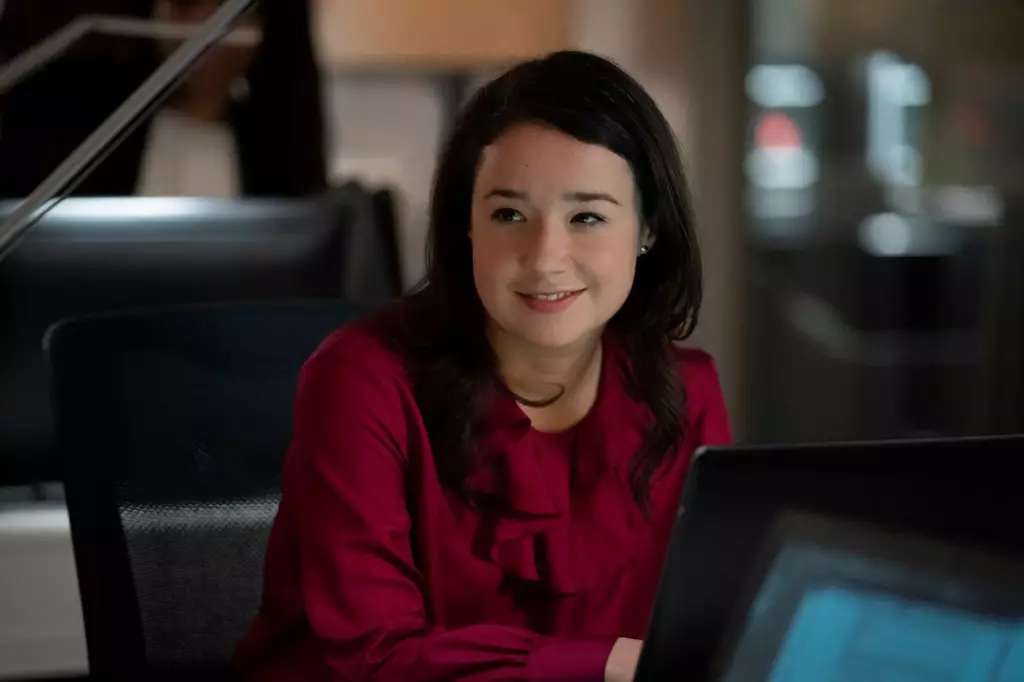The upcoming third season of *Elsbeth* promises not just continuity but a daring expansion of its universe, inviting fans to revisit beloved characters while exploring new storylines. Sarah Steele’s return as Marissa Gold signifies a strategic move that enriches the narrative fabric, intertwining the worlds of *The Good Wife*, *The Good Fight*, and *Elsbeth* in a seamless tapestry. Her character’s re-emergence isn’t a mere cameo but a testament to the interconnected storytelling approach that has come to define this franchise. Marissa’s evolution from a secondary figure to a pivotal player in this universe demonstrates a deliberate effort by the creators to deepen character arcs and provide audiences with more nuanced storytelling.
Crucially, the creators seem aware of the value that recurring characters bring, leveraging their familiarity to inject continuity and emotional resonance. Steele’s previous role as Eli Gold’s daughter offered a glimpse into her sharp intellect and tenacity, traits that continue to serve her well as she navigates her complex professional and personal worlds. The decision to bring her back underscores the franchise’s commitment to character-driven stories, which allows for organic character growth and audience investment. Moreover, her inclusion hints at potential crossovers that could deepen the narrative layers, making *Elsbeth* more than just a standalone series—it’s becoming a nexus for a sprawling, interconnected universe.
Expanding the Ensemble: A Tapestry of Talent and Perspectives
The cast of *Elsbeth* continues to flourish, with key figures such as Carrie Preston’s Elsbeth Tascioni once again at the center. Preston’s portrayal of the astute, quirky attorney is essential not only for the show’s unique tone but also for its clever storytelling approach—blending legal drama with sharp wit and unpredictable logic. The show’s ability to maintain compelling plotlines while showcasing Preston’s vibrant performance speaks to its strength in character-driven narratives.
Adding to this rich ensemble are guest stars that elevate the series’ scope and flavor. Stephen Colbert’s cameo as a late-night host, along with Amy Sedaris’s comedic portrayal of Laurel Hammond-Muntz, indicates that the series is embracing humor and pop culture more boldly this season. It’s a deliberate move that balances serious legal and criminal investigations with light-hearted moments, enriching the viewing experience. Lindsay Mendez’s role as an officer turned aspiring comedian further underscores this blend, illustrating how the show deftly navigates themes of ambition, resilience, and the transformative power of art and humor.
This eclectic mix of characters and guest stars reflects a broader trend in modern television—a willingness to blur genre lines and experiment with tone. It also hints at the show’s ambition to comment on contemporary issues through diverse perspectives, from the world of politics and law to the entertainment industry. The inclusion of these varied voices makes *Elsbeth* not just a legal procedural but a cultural mirror, resonating with audiences seeking layered, multifaceted storytelling.
Innovation and Nostalgia Hand in Hand
What makes *Elsbeth* particularly compelling is its capacity to blend nostalgia with innovation. The recurring appearances of actors from *The Good Wife* and *The Good Fight* serve as anchors for longtime fans, creating a sense of familiarity and continuity. Yet, the series doesn’t rest on these laurels; it actively seeks to expand its narrative horizon through bold casting choices and thematic shifts. For instance, the Halloween-themed episode featuring Annaleigh Ashford as a murderous suburban housewife signals a willingness to venture into darker, more theatrical territory—an inventive departure that keeps the series fresh and unpredictable.
Similarly, William Jackson Harper’s role as a struggling poetry journal director injects artistic sensibilities into a show rooted in crime and legal affairs, reminding viewers of the cultural depth that can be woven into procedural storytelling. Lois Smith’s appearance also hints at a willingness to explore more nuanced, possibly emotional storylines, further elevating the series’ thematic richness.
Overall, *Elsbeth* Season 3 appears poised to redefine what a legal drama can be—combining sharp wit, cultural commentary, and robust character development. It demonstrates how a franchise can evolve without losing sight of its roots, delivering a compelling mix of familiarity and surprise that keeps audiences engaged. As the series continues to push boundaries and explore new narrative realms, it affirms its status as a modern television standout—one that values innovation as much as tradition, critical depth as much as entertainment.

